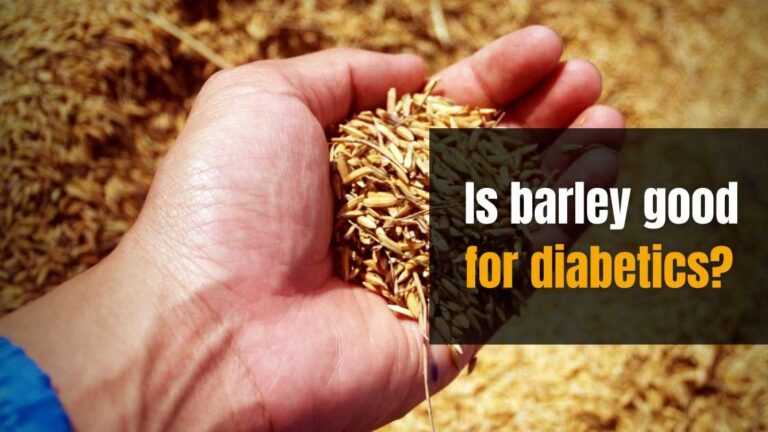The passion fruit (Passiflora edulis) is an exotic fruit typically grown in warm climates. This fruit is mostly found in South America, Australia, South Africa, and India. The fruit contains a soft pulp (soggy texture) and plenty of seeds inside a hard rind. The seeds and the pulp can be eaten.
This fruit can also be consumed in a juice form. It is called passion fruit because it is one of the many species of passionflower, the English translation of the Latin genus name, Passiflora. The name was given by missionaries in Brazil as an educational aid in the 17th century while trying to convert the indigenous inhabitants to Christianity.
Because the fruit is sweet, many especially diabetics have wondered if the fruit is safe for consumption. This article will help explain in detail if the passion fruit is good for people with diabetes and whether it should be consumed or not.
However, we first need to look at the disease called diabetes.
Diabetes, what is it?
Diabetes mellitus often referred to as diabetes, is a metabolic disease that causes too much sugar in the blood (high blood glucose). When your blood sugar rises, it sends a signal to your pancreas to release insulin. Insulin is a hormone that allows blood sugar into your body’s cells for use as energy.
If you are diagnosed with diabetes, it means your body cannot make enough insulin or cannot use the insulin to its maximum capacity. A lack of insulin in the body causes an accumulation of blood sugar in the bloodstream which can lead to severe health problems over time. Some of these health problems are heart disease, vision loss, and kidney disease.
There is no known cure for diabetes however losing weight, eating healthy food, and being active can help manage this condition. Diabetics are people diagnosed with diabetes.
There are 3 types of diabetes namely, type 1 diabetes, type 2 diabetes, and gestational diabetes.
Type 2 diabetes
This type of diabetes results from the body’s inadequate use of insulin. Excess body weight (obesity) and physical inactivity can be caused by this type of diabetes.
Type 1 diabetes
Another type of diabetes is known for requiring a daily dose of insulin. Caused as a result of insufficient insulin production in the body. This type of diabetes can cause too much excretion of urine, thirst, constant hunger, weight loss, vision changes, and fatigue.
Gestational diabetes
A type of diabetes that develops during pregnancy and usually disappears after giving birth. It can happen at any stage of pregnancy but is more common in the second or third trimester. Pregnant women or women with gestational diabetes face an increased risk of complications during pregnancy and at delivery. These women and their children are also at increased risk of type 2 diabetes in the future.
To ascertain if the passion fruit is good for people with diabetes, we first need to look at the following factors in detail
- The type of sugar present in passion fruit
- The glycemic index of passion fruit
- Other medicinal components of passion fruit that may or may not be beneficial to diabetic people
These factors can help us conclude to know if the passion fruit is good for diabetes.
Types of sugar found in the passion fruit
The passion fruit contains both simple sugars and complex sugar. The simple sugars found in pineapple include sucrose, fructose, and glucose. Simple sugars, also known as natural sugars are good because they do not cause a sharp increase in blood sugar levels. Fibre, a complex sugar, is also present in the passion fruit in high amounts.
Does the type of sugars in passion fruit cause an increase in blood sugar?
The types of sugars found in passion fruit do not cause a steep increase in blood sugar. This is because they contain complex sugars such as fiber which take a long time to break down in the body, thus, making sure there is a slow release of sugar into the bloodstream.
This ensures that your blood sugar levels are always regulated and kept in check.
The glycemic index of passion fruit
A glycemic index is a tool used to measure the increase in blood sugar levels. This tool gives numbers (a scale of 0 to 100) to foods based on how slowly or quickly those foods can cause increases in blood sugar levels. The foods are then classified into low, medium, and high glycemic foods.
The lower the glycemic index of a food, the lower the chances of the food affecting your blood sugar levels, the higher the glycemic index of a food, the greater the chances of the food affecting your blood sugar levels.
Below is the classification of the glycemic index
Low: 0 to 55
Medium: 56 to 69
High: 70 to 100
The passion fruit has a glycemic index of 16 which puts it in the low glycemic index classification. This shows that eating passion fruit will not cause harm to people with diabetes.
Can passion fruit increase blood sugar?
Due to the presence of both simple and complex sugars in the passion fruit, it does have the ability to increase blood sugar however in small amounts. These sugars do not cause a massive increase in blood sugar levels in the body and also, they need a substantial amount of time before they can be broken down and processed in the body.
Other health benefits of the passion fruit which can be beneficial to people with diabetes
It can boost the immune system
Passion fruit is rich in vitamin C, a nutrient that helps protect the body from damage caused by free radicals. Vitamin C is also good for protecting the body against diseases and infections.
Supports heart health
The passion fruit is rich in potassium and low in sodium. Food or fruits low in sodium help to decrease blood pressure. The fruit also has fiber which can help to remove excess cholesterol from the inside of blood vessels.
Good for digestive health
With its high fiber content, the passion fruit makes stool easier to pass out and prevents constipation and stomach cramps
Promotes good sleep
Another health benefit of the passion fruit is that it contains medicinal alkaloids and many phytonutrients that serve as powerful sedatives. Regular consumption of passion fruit is recommended for people who find difficulty sleeping. The alkaloids reduce sleeplessness, restlessness and relieve anxiety.
Improves skin complexion
The fruit is also rich in vitamin C, which protects the skin from sagging, harmful UV light rays and keeps the skin looking young and fresh.







Leave a Comment